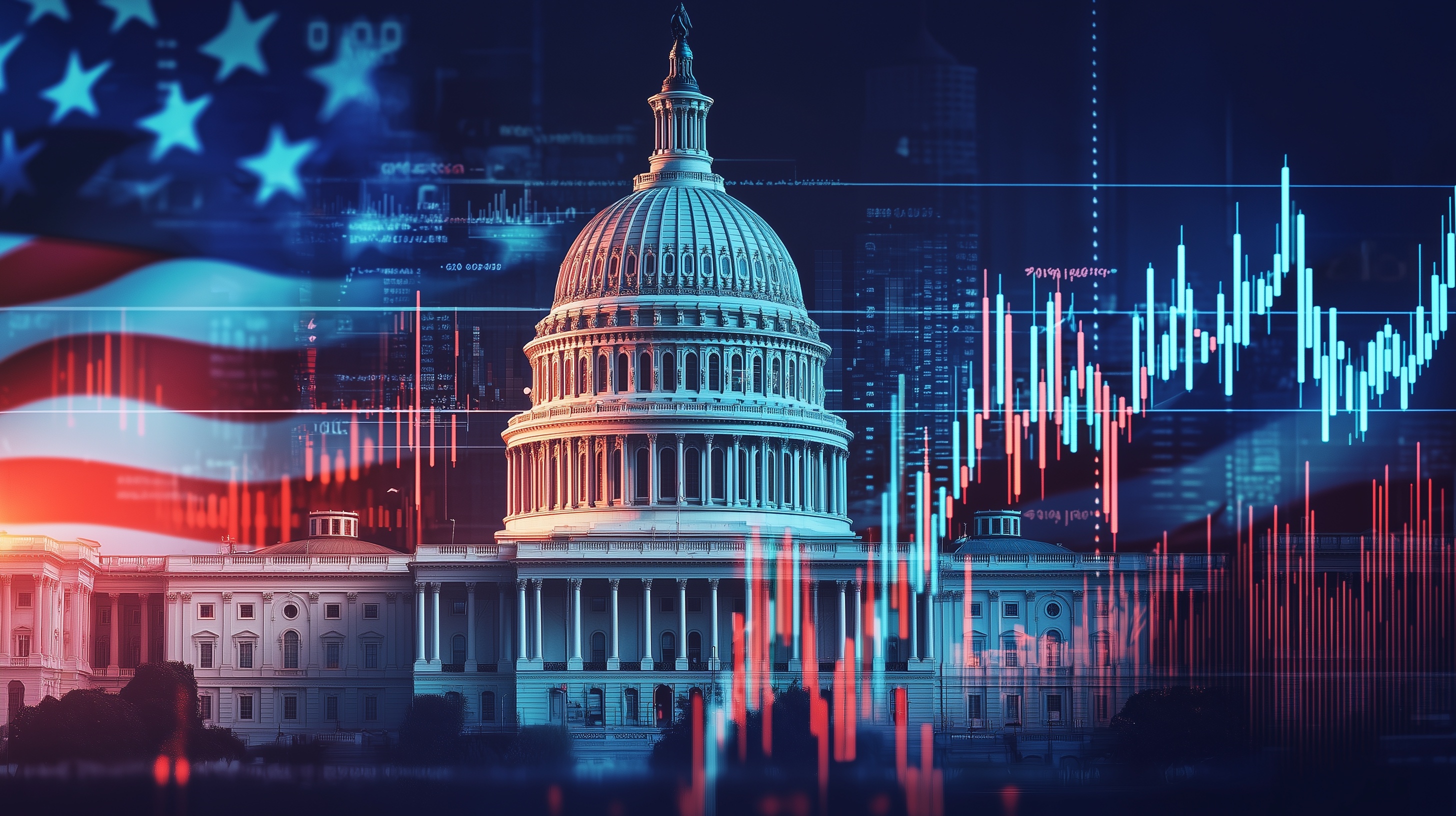The Sun Also Rises

Raise your hand if you thought 2020 was going to be a “normal” year. Everyone’s hand raised? Mine, too.
In beginning to write this post, I’ve moved from my “office” (read: desk in the basement) to the couch (also in the basement), a space I’ve shared with my wife while working from home for the last four months, and while also trying to raise our two boys.
And we’re not alone.
We’ve all had a lifetime’s worth of grave, surprising, tragic, confusing events happen over the last five months or so. We’ve had a global pandemic, a rather predictable recession brought on by the lockdowns meant to stem contagion, the most volatile month in stock market history, UFO sightings, civil unrest, murder hornets (who probably left in fear of 2020), and the continued and painful polarization of America around multiple topics. And the upcoming presidential election is sure to be one of the most tumultuous in recent memory. We’re living in a bit of a powder keg.
Top all that with a 24-hour news cycle incessantly broadcasting doom and despair, and it doesn’t take an expert to see much of the world is under epic stress levels by modern standards. For better or worse, 2020 is proving to be the stuff of meme dreams.
Reflections and Contradictions Between the Stock Market and the Economy
Investors are inevitably affected emotionally by all this, and they can let that emotion carry over into their portfolio decisions. They understandably assume the state of the economy will drive the stock market one way or the other.
But the stock market has always been a leading indicator of economic recessions, not the other way around.
We saw this in February and March as the global impact of COVID-19 began to unfold. A few months ago, the Federal Reserve Bank of St. Louis President James Bullard spoke of framing the current economic environment differently given the pandemic. He said, “Words like ‘recession’ and ‘stimulus’ don’t make sense in the pandemic.” He said this because the goal of lockdowns was to intentionally halt routine activity for the sake of immediate public health, knowing full well the economic slowdown they would create. Similarly, using “stimulus” is not wholly accurate, as the 2020 CARES Act was passed to provide emergency relief for everyday Americans rather than stimulus in the traditional sense.
Yet, despite what’s unfolded, we sit just over halfway through the year with the S&P 500 up just under 2.4%, the Nasdaq up 20.4%, and Barclays U.S. Aggregate (Bonds) up 7.7% for the year.
From peak to trough, the S&P 500 fell more than 35% from February 19 to March 23, descending dramatically in just 24 trading days. From the March bottom the market has ascended at an even more breathtaking pace, gaining 48% through August 3.
It’s simply remarkable considering the incredible domestic and global challenges we currently face.
But how is this performance even possible? It’s hard for us to reconcile.
Balentine CEO Adrian Cronje has a Ph.D. in Economics. He’s a frequent speaker to business leaders and investors. One of his most frequent messages is that the stock market is not the economy. Never has that rung truer than right now. He explores this in depth in a recent blog post, “After the ‘Great Lockdown,’ the ‘Great Disconnect’?” This idea of the disconnect (and how to reconcile it) is resonating widely with our clients and with business leaders. In fact, Adrian was recently invited to present on the topic to members of Vistage, the world’s largest peer mentoring membership organization for CEOs, business owners, and executives. I urge you to take a few minutes to read it.
We are most certainly in a recession now with over 50 million Americans having drawn unemployment benefits, an unemployment rate of 10.2% through the end of July, and the looming question of how to get kids back to school safely (which in turn predicates America’s ability to get back to work).
Yet here we stand, just over 4% away from all-time highs in the S&P 500 (the Nasdaq IS at all-time highs).
This offers a textbook example of why the stock market is not the economy.
Why, then, are so many of us so terrified and pessimistic? It’s perfectly natural. It’s anthropology. It’s part of our wiring as humans. We are hard wired to sense and fixate on danger to survive. We’re also highly tribal, and we thrive on storytelling. No wonder when we hear a bad piece of news from a friend, on social media, or in the news, we focus on that over any positive news which might be delivered at the same time. Self-awareness is the first step in conquering this primitive nature of ours.
Keep Things in Context
The twentieth century was the most transformative in human history. Innovations in transportation, medicine, technology, space exploration, and the internet catapulted society forward at incredible orders of magnitude. However, much of this progress was almost undone by World War I, the Spanish Flu of 1918 (which killed over 40 million people), the Great Depression, World War II, the Holocaust, Mao Zedong’s tyrannical rule over China, the Cuban Missile Crisis, the assassinations of JFK, RFK, MLK, Vietnam, the Cold War, Desert Storm, and Y2K—just to name a few. (Remember Y2K? Everyone was so scared their computers would go “POOF!” It seems rather inconsequential now in the scheme of things.)
The night before D-Day, FDR asked Eleanor how she felt about not knowing what would happen next. Her response: “To be nearly sixty and still rebel at uncertainty is ridiculous isn’t it?” Society had endured so much in preceding decades, it’s fair to say people became tougher, more able to absorb shocks, and to accept a certain degree of uncertainty.
In comparison to that era full of trials, we are living in the most prosperous, healthy, educated, safest, longest-lived, best-fed period in the history of civilization. While many in our society continue to endure various hardships, life is relatively easier and more predictable in this decade than in those prior.
Naturally, our tolerance for uncertainty and shock has fallen. Understandably, we as a society may have lost a bit of muscle for dealing with external shocks and uncertainty.
It’s vital to remember this historical context and to focus on the unshakable truth that the perseverance of the human spirit in the face of uncertainty is an unstoppable force. It will propel us forward, in spite of what media headlines may tell you. (In fact, my colleague Bradley Martin wrote this blog examining why it may not always pay to watch the news. It was written in 2017 and is just as relevant today.)
Over the long term, the future is decided by optimists. To be an optimist you don’t have to ignore all the many problems we create; you just have to imagine improving our capacity to solve problems. —Kevin Kelly, Author of The Inevitable
Is my outlook a little too Pollyanna? I would argue it’s instead a calculated realism, a pragmatic optimism. I must agree with author and founding editor of Wired magazine Kevin Kelly. He says that “Over the long term, the future is decided by optimists. To be an optimist you don’t have to ignore all the many problems we create; you just have to imagine improving our capacity to solve problems.”
Managing Risk by Mastering Fear
I fully respect and appreciate just how fragile and risky life really is. So much so, that I spend much of my time at Balentine working with clients planning around downside risks to their portfolios.
To help assuage our clients’ fears, we use our Balentine Blueprint, a proprietary financial planning tool that marries the latest in financial planning tools with our Capital Markets Forecast. There is no more dusty binder sitting on that shelf somewhere you can’t find. Your Blueprint is as portable as the cell phone in your hand or the computer on your desk. Overnight feeds update your account values in a “Command Center” view to help aggregate and simplify your financial picture. Its iterative Monte Carlo simulations—used to model probability of different outcomes in a process that cannot easily be predicted due to the intervention of random variables (a.k.a. “life”)—enable us to model risks to your investment portfolio, such as varied spending levels, asset allocation changes, bear markets, sequence of return risk, health longevity risk, or loss of income.
I like to think of it as a financial “flight simulator” in which we mimic different economic conditions. While there will always be black swan events, we can plan for potential effects of countless variable shifts BEFORE they happen. We do this constantly and not only in times of crisis. As JFK so aptly said, “The best time to fix the roof is when the sun is shining.”
But the most valuable aspect is not the Balentine Blueprint itself. It’s the perpetual act of planning as life comes our way. Circumstances change, life happens. The ability to respond and adapt with a new plan in place is invaluable. It provides our clients peace of mind in navigating unsettling times, while keeping their financial goals in focus on the horizon.
Where and How We Go from Here
I recently finished the space thriller Ad Astra during the shelter-in-place mandate.
Brad Pitt plays an astronaut [NO SPOILERS] but delivers a rather fortuitous line given current events: “I'm unsure of the future, but I'm not concerned. I will rely on those closest to me, and I will share their burdens, as they share mine.”
We all know things will be okay in the long run. Drive through any town right now and you’re sure to see a homemade sign that says, “Everything will be OK.” But we humans don’t live in the long-run, we live in the short-run. And the long-run is just a collection of short-runs, which makes it so stressful. Yes, the world is a complex place. But, for the most part, we can choose how to respond in times of crisis.
As the title of this piece and one of my favorite Ernest Hemingway books reflects, the sun will rise. Let’s bank on that, remember to filter the news we take in, try to respond to outside events with logic vs. fear, and move forward together…knowing we’re not alone.
Browse our collection of resources from trusted thought leaders.
Balentine experts offer their authentic take on the latest financial topics, including our exclusive market publications, news, community events, and more.
%20(1).png)
.png)

.png)


%20(1).png)